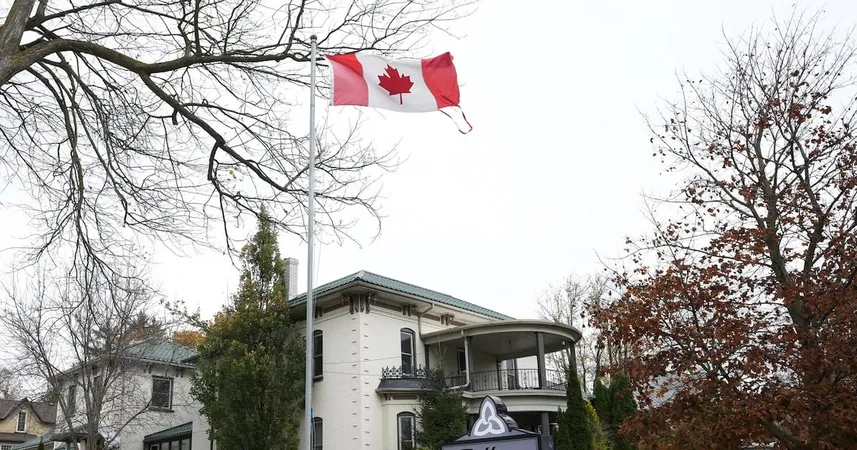
New Poll Reveals Disturbing Trends in Canadian Happiness Among Immigrants
2024-11-16
Author: William
New Poll Reveals Disturbing Trends in Canadian Happiness Among Immigrants
A recent poll conducted by Angus Reid has unveiled a troubling decline in happiness among Canadians, particularly among non-white and recently arrived immigrants. While a majority of Canadians (61%) still classify themselves as “very happy” or “pretty happy,” these numbers are considerably lower compared to previous years, indicating a significant shift in the national mood.
The survey, which involved more than 1,600 adult Canadians last summer and had a margin of error of plus or minus two per cent, highlighted that happiness levels appear to correlate with both the duration of residence in Canada and ethnic background. Notably, those born in Canada reported higher satisfaction, with 64% identifying as happy, compared to 45% of immigrants who settled within the last 20 years. Among the newer immigrants, a startling 48% expressed feelings of unhappiness, while only 45% claimed to be happy. An additional 7% reported uncertainty about their emotional state.
The trend continues for non-white Canadians, who indicated a split in happiness levels: 52% reported being happy, but a concerning 45% reported being unhappy. In contrast, white Canadians were more likely to self-identify as happy (65%) than unhappy (33%).
Shachi Kurl, president of Angus Reid, reflected on the challenges faced by new immigrants. She noted that "to uproot yourself from your home country and try to reestablish yourself in a new country—financially, professionally, and socially—is not easy." Kurl's own experience as the daughter of Indian immigrants further underscores the difficulties that many new Canadians face.
Interestingly, the survey also reveals that long-term immigrants—those who have lived in Canada for over 20 years—report higher happiness levels, closely aligning with those born in Canada. About 60% of these long-term immigrants identified as happy, while only 39% expressed unhappiness.
The poll also illustrates a concerning downward trend in overall Canadian happiness when compared to a similar study conducted in 2015, where 79% of participants described their outlook on life as satisfied or very satisfied. In the recent survey, this number fell to 70%, with dissatisfaction now affecting 30% of the population.
Contributing factors to this decline in happiness may include the ongoing cost of living crisis and the lingering emotional impacts of post-pandemic isolation. Kurl pointed out that the effects of the pandemic continue to influence Canadians’ well-being, stating, "We have not come out of that entirely."
Despite the grim statistics, some aspects of life continue to bring satisfaction to many Canadians. A substantial 85% reported being satisfied with their family relationships, and 81% expressed contentment with their living conditions. However, satisfaction with personal finances (53%) and mental health (69%) continues to lag behind.
Overall, this survey serves as a wake-up call to Canadian policymakers and community leaders, urging them to address the issues faced by immigrants and promote inclusivity and support systems to foster a more positive environment for all Canadians. The poor ratings among new immigrants may highlight gaps in social integration that could be remedied through community support initiatives and targeted policies. With Canada being one of the most diverse nations globally, ensuring that every resident feels included and happy is essential for the country's future.
As the findings suggest, the journey toward stability and happiness may improve as new immigrants establish roots, but immediate action is necessary to support those still grappling with the challenges of relocation.









 Brasil (PT)
Brasil (PT)
 Canada (EN)
Canada (EN)
 Chile (ES)
Chile (ES)
 España (ES)
España (ES)
 France (FR)
France (FR)
 Hong Kong (EN)
Hong Kong (EN)
 Italia (IT)
Italia (IT)
 日本 (JA)
日本 (JA)
 Magyarország (HU)
Magyarország (HU)
 Norge (NO)
Norge (NO)
 Polska (PL)
Polska (PL)
 Schweiz (DE)
Schweiz (DE)
 Singapore (EN)
Singapore (EN)
 Sverige (SV)
Sverige (SV)
 Suomi (FI)
Suomi (FI)
 Türkiye (TR)
Türkiye (TR)